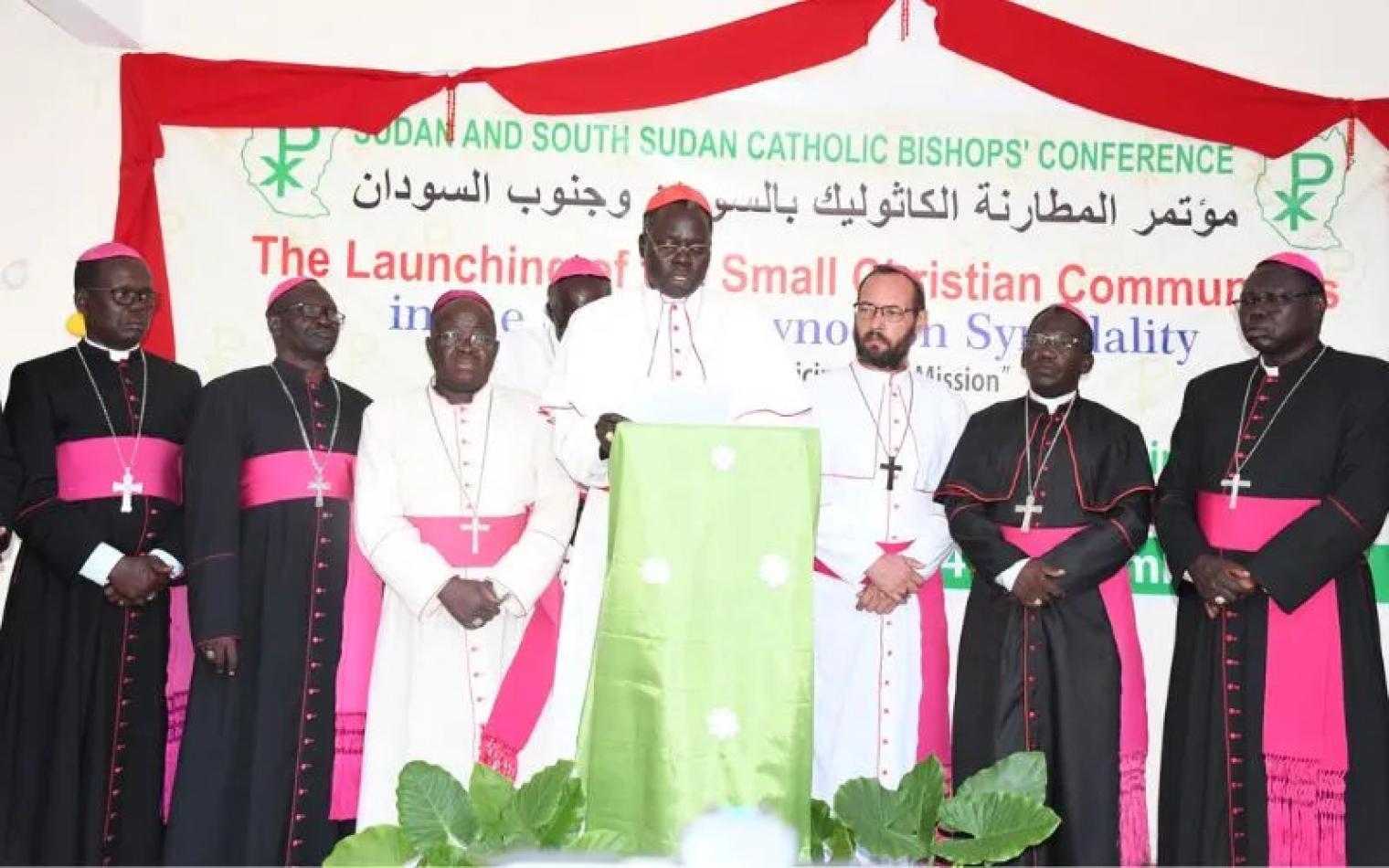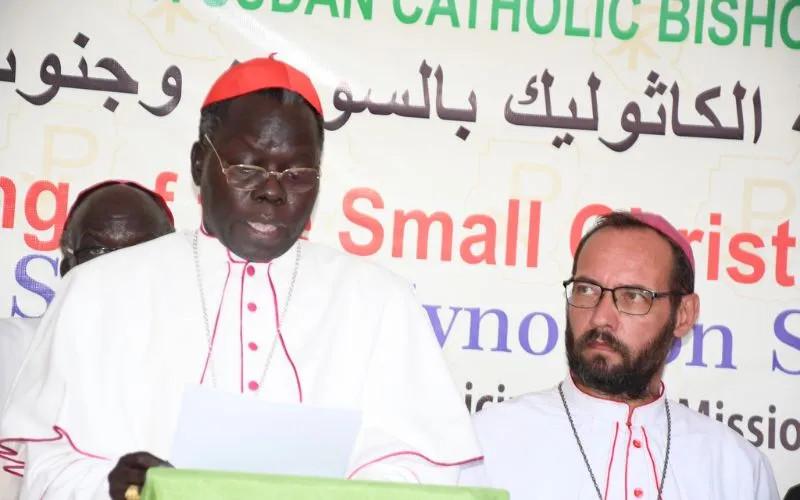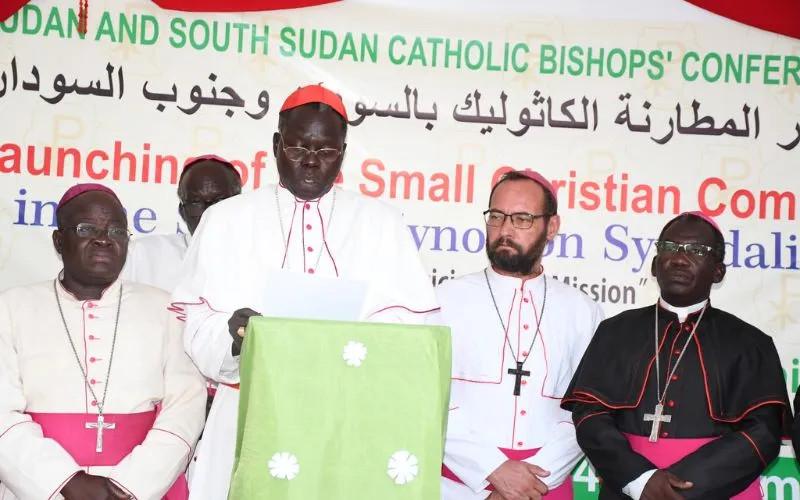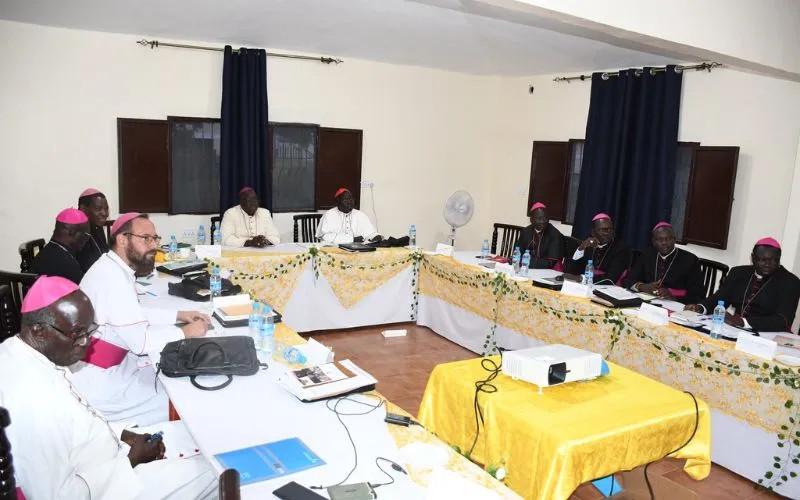Daniel Comboni
Missionários Combonianos
Área institucional
Outros links
Newsletter
Lunedì 17 novembre 2025
La Conferenza Episcopale comune ai due Paesi africani denuncia lotte di potere e interessi che ostacolano la riconciliazione e lancia un appello alla comunità internazionale affinché mantenga l’impegno verso la popolazione civile più vulnerabile. [Credit photo: Catholic Radio Network. Members of the SSS-CBC. ACI Africa]
La Conferenza episcopale del Sudan e del Sud Sudan a conclusione dell’assemblea plenaria lancia un grido di dolore contro il progressivo deterioramento della situazione generale, gli accordi di pace «disonorati» e l’assenza di un vero dialogo per la riconciliaizone. I presuli della regione hanno discusso fino a ieri nella città di Malakal sul tema “Costruire la pace, guarire le ferite e rafforzare l’unità. In una dichiarazione letta dal cardinale Stephen Ameyu Martin Mulla, arcivescovo di Juba e presidente dell’episcopato, si sottolinea che «è allarmante che il dialogo non sia più visto come veicolo di armonia, guarigione, riconciliazione e unità». Al contrario, «interessi egoistici hanno scatenato la violenza, aggravando le crisi umanitarie, l’odio tra le comunità e gli sfollamenti diffusi».
Lotte egoistiche a discapito della dignità umana
I vescovi hanno condannato le continue lotte di potere tra fazioni politiche rivali (che alimentano le crescenti divisioni etniche e tribali) e l’uso improprio delle risorse nazionali per guadagno personale: lotte «egoistiche, irrispettose della dignità umana» che vedono «la nostra terra sfruttata indebitamente da individui per il loro lusso personale». Al contrario, «guidare significa servire», avvertono, ricordando che «dove c’è ingiustizia c’è il seme di futuri conflitti». Il discorso vale soprattutto per il Sud Sudan, nato appena quattordici anni fa «da una lotta per la libertà» e che «dovrebbe restare unito in una comunione di intenti». Invece «stiamo assistendo a divisioni senza precedenti in nome della politica».
Il rimpatrio dei rifugiati
Tra le emergenze c’è quella del «rimpatrio forzato dei rifugiati sudsudanesi dal Sudan», per i quali si chiedono «soluzioni umane e giuste da entrambi i governi». I vescovi concludono la loro dichiarazione esortando le autorità ad attuare il Revitalized Agreement for the Resolution of Conflict in South Sudan e le parti sudanesi in conflitto a tornare ai colloqui di pace a Gedda. Alle Nazioni Unite e ai partner internazionali lanciano infine un appello affinché mantengano il loro impegno nei confronti della popolazione in questo momento drammatico, anche se il recente ridimensionamento e la chiusura di alcune basi della United Nations Mission in South Sudan potrebbero minare gli sforzi e avere «gravi conseguenze per la pace».
Giovanni Zavatta – Vatican News







